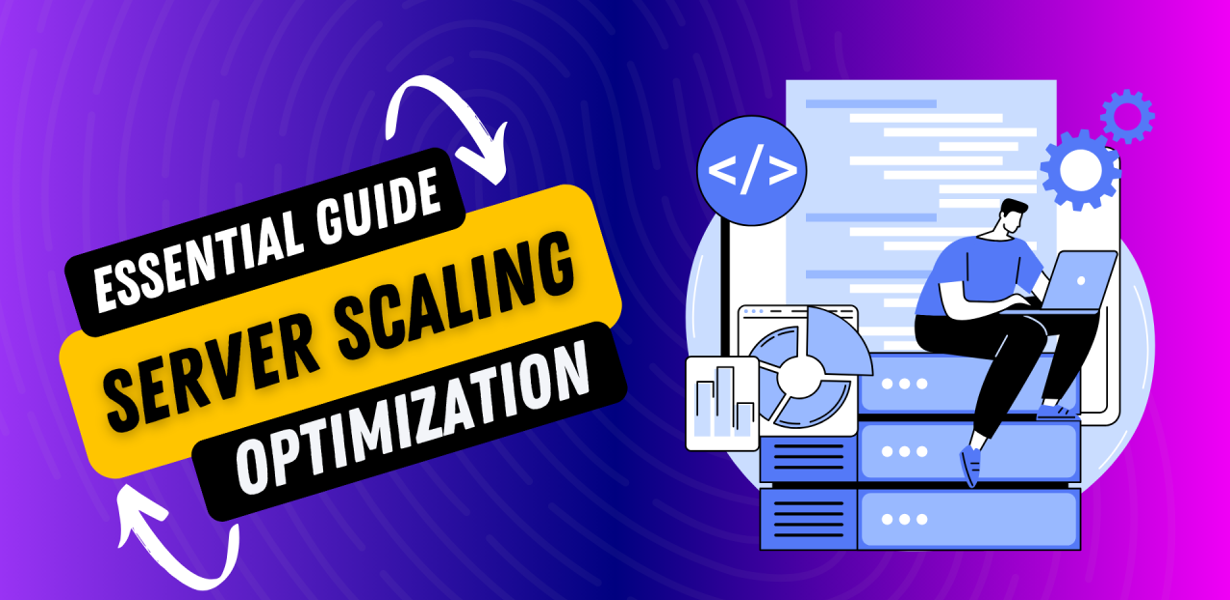
Performance optimization isn’t solely about achieving faster load times or higher page speeds. It encompasses a broader spectrum of strategies and techniques that, when implemented effectively, can enhance user experience, boost conversions, and even improve search engine rankings. In this blog, we’ll explore various facets of scaling and performance optimization that go beyond the superficial need for speed.
The Importance of Performance Optimization
The User Experience
User experience (UX) is a critical factor in the success of any digital endeavor. Slow-loading websites frustrate users and often lead to high bounce rates. To keep users engaged, a seamless and responsive interface is imperative.
SEO Impact
Search engines, especially Google, consider page speed and performance as ranking factors. A well-optimized website not only improves user experience but also enjoys better visibility in search results.
Conversion Rates
Performance optimization directly impacts conversion rates. Faster websites tend to convert visitors into customers more effectively, leading to increased revenue.
Strategies for Performance Optimization
Content Delivery Networks (CDNs)
CDNs are a network of servers distributed across various geographic locations. They cache and serve content from the server closest to the user, reducing latency and enhancing page loading speed.
Caching Mechanisms
Caching involves storing frequently accessed data for quicker retrieval. Utilizing browser caching and server-side caching can significantly reduce loading times.
Image Optimization
Optimizing images, such as compressing and scaling, is vital for faster page loading without compromising visual quality.
Lazy Loading
Lazy loading delays the loading of non-essential content until the user interacts with it. This technique conserves bandwidth and accelerates initial page rendering.
Minification of Code
Removing unnecessary white spaces, line breaks, and comments from code files can reduce file size and improve loading times.
Server-Side Optimization
Efficient Hosting
Choosing the right hosting solution, whether shared, VPS, or dedicated, plays a pivotal role in website performance. Consider your website’s requirements and traffic when selecting a hosting plan.
Database Optimization
Database queries can be optimized to reduce the server’s load and speed up content retrieval.
Load Balancing
Distributing network traffic across multiple servers ensures optimal performance, even during high traffic spikes.
Mobile Optimization
Responsive Design
Creating a responsive website design that adapts to different screen sizes and devices is essential for ensuring a seamless user experience on mobile.
Accelerated Mobile Pages (AMP)
Implementing AMP for content-heavy pages can lead to significantly faster loading times on mobile devices.
Final Words
Performance optimization is not a one-size-fits-all solution. It involves a combination of strategies and techniques tailored to the specific needs and goals of your website. Beyond speed, focusing on user experience, SEO, and conversion rates is vital for digital success. By implementing the innovative solutions discussed here, you can scale your website’s performance and stay ahead in the competitive online realm.
Commonly Asked Questions
1. How does performance optimization affect SEO?
Performance optimization, including page speed and user experience improvements, positively impacts SEO by increasing search engine rankings. Google considers fast-loading websites as a ranking factor, making optimization essential for better visibility.
2. What are the benefits of using a Content Delivery Network (CDN)?
CDNs enhance performance by distributing content from servers closer to the user, reducing latency and load times. They also offer added security and reliability, making them a valuable addition to your website.
3. What is lazy loading, and how does it benefit websites?
Lazy loading is a technique that delays the loading of non-essential content until a user interacts with it. This conserves bandwidth and accelerates initial page rendering, resulting in a faster and more efficient user experience.
4. How can I improve mobile optimization for my website?
Mobile optimization can be achieved by implementing responsive design to adapt to various screen sizes and using Accelerated Mobile Pages (AMP) for content-heavy pages. These strategies ensure a seamless user experience on mobile devices.
5. What is the role of database optimization in website performance?
Database optimization involves refining database queries and structure to reduce the server’s load and speed up content retrieval. It plays a crucial role in ensuring efficient website performance.
Advertisement







